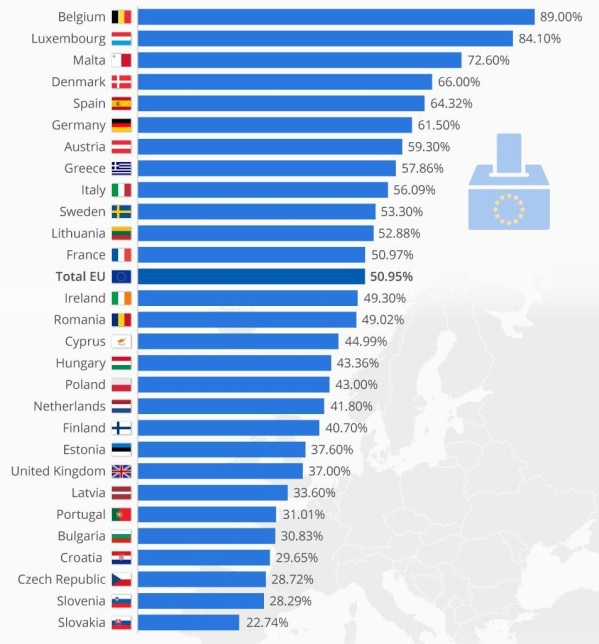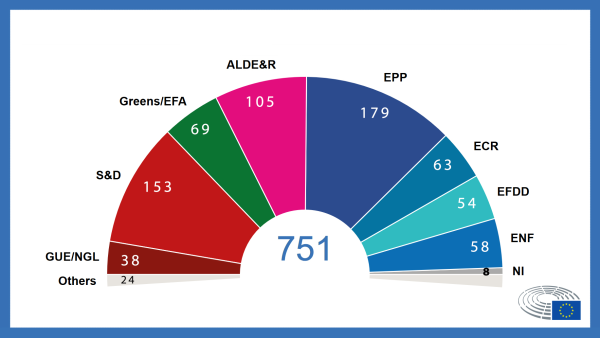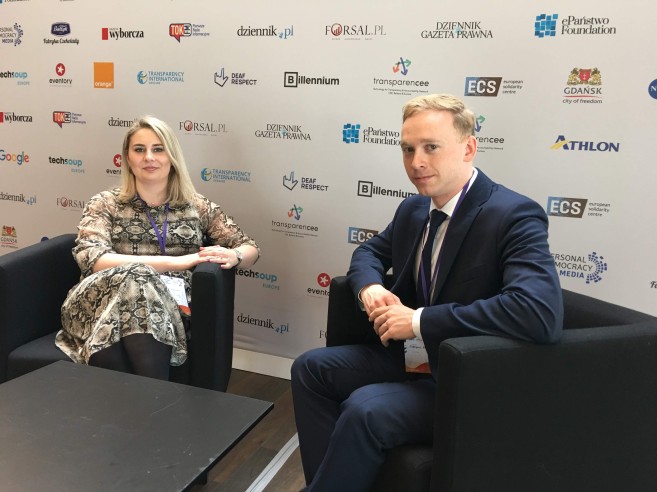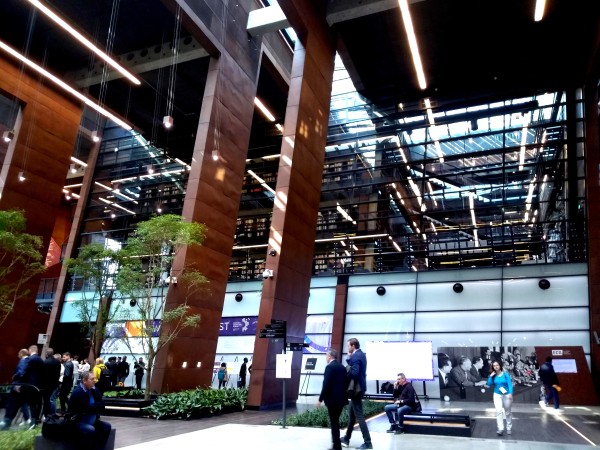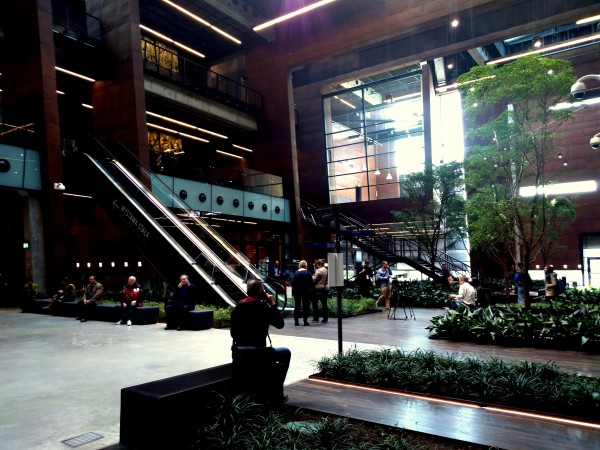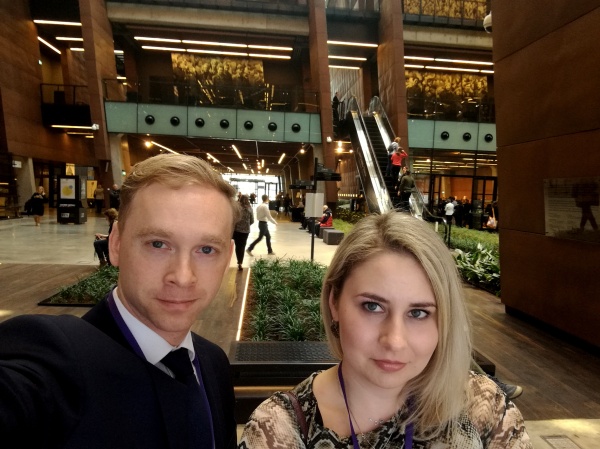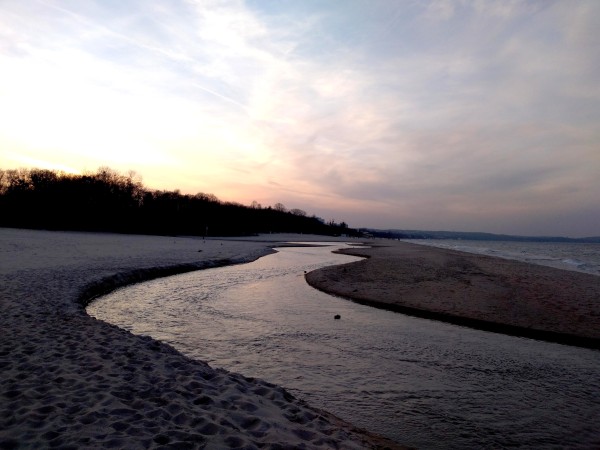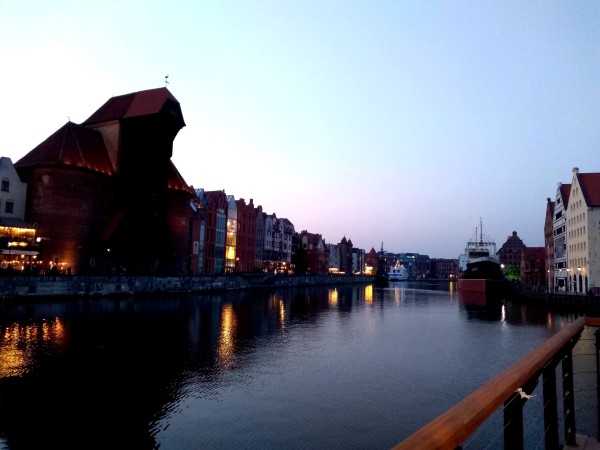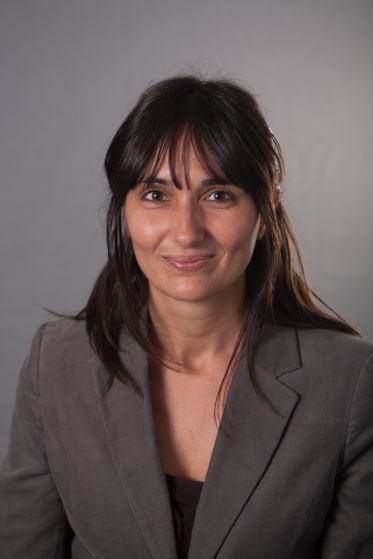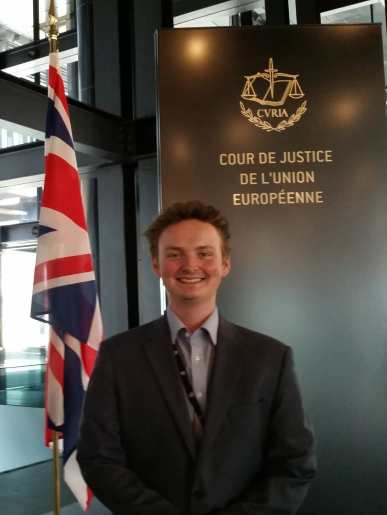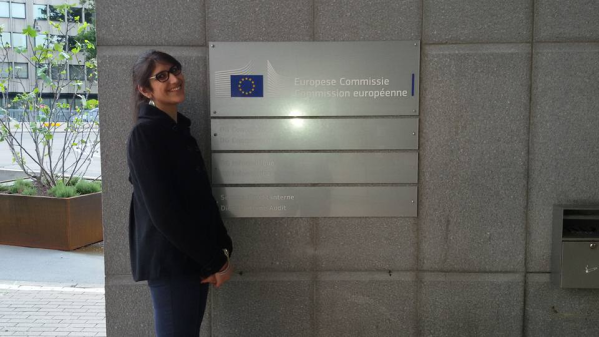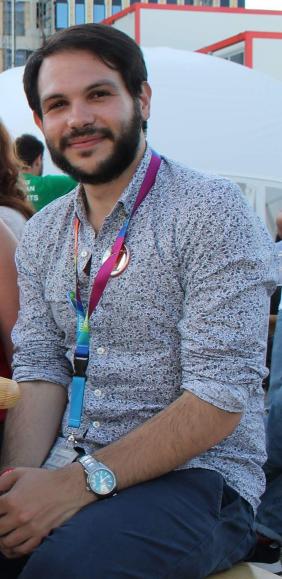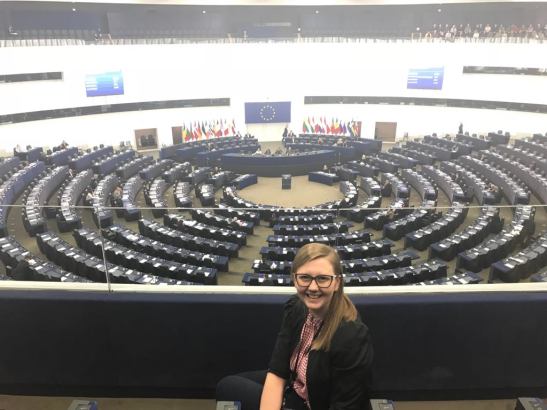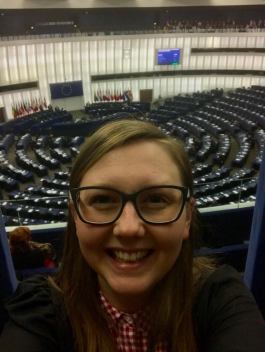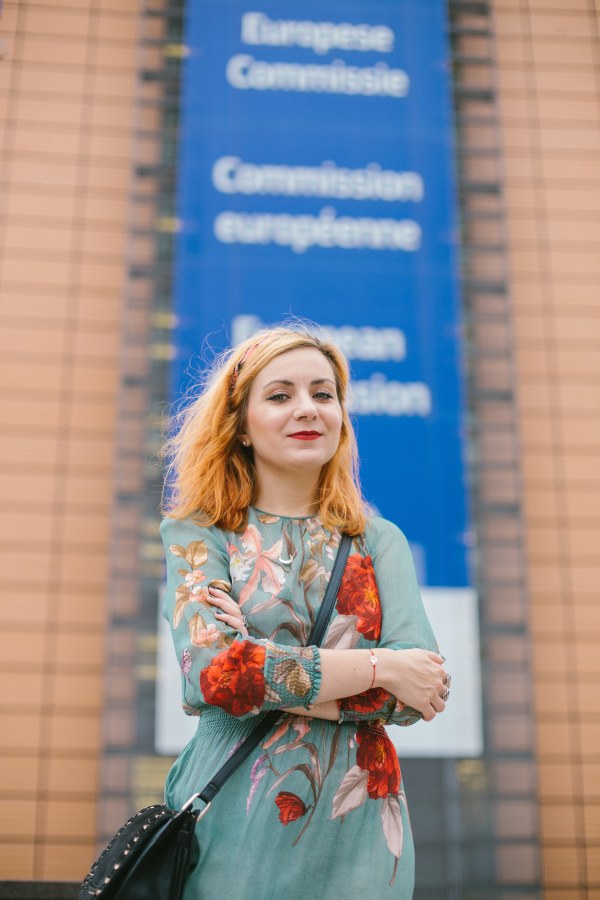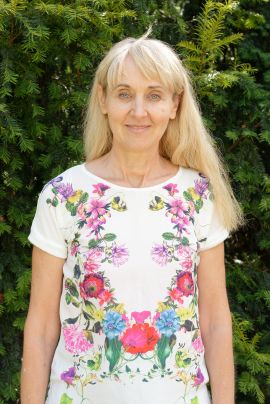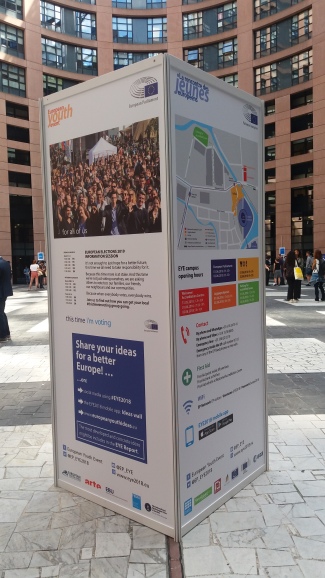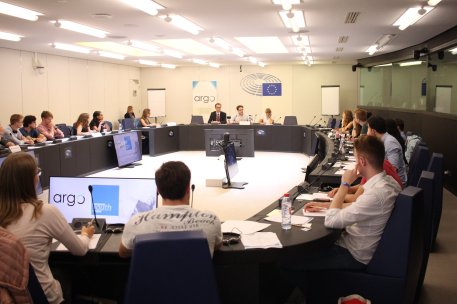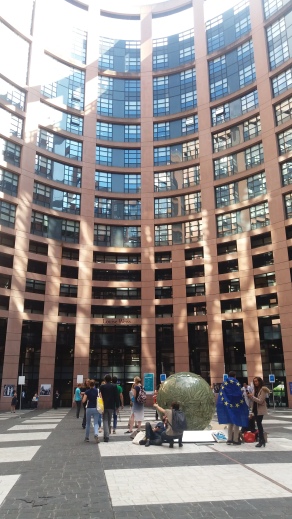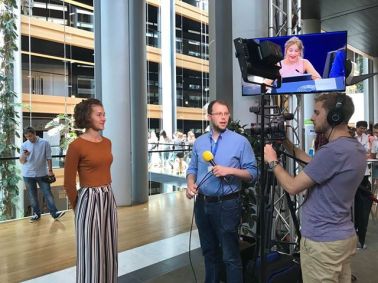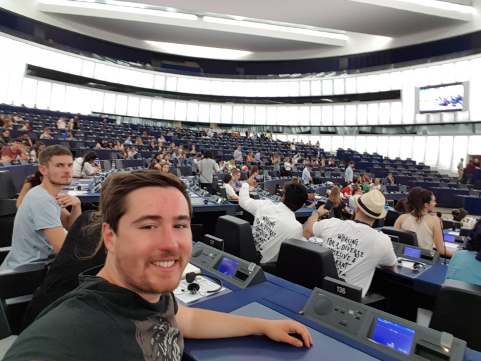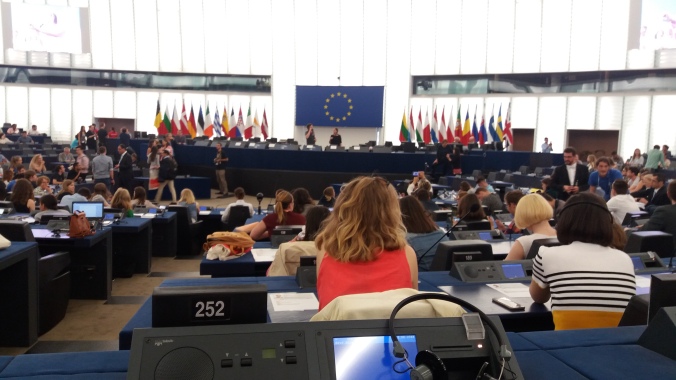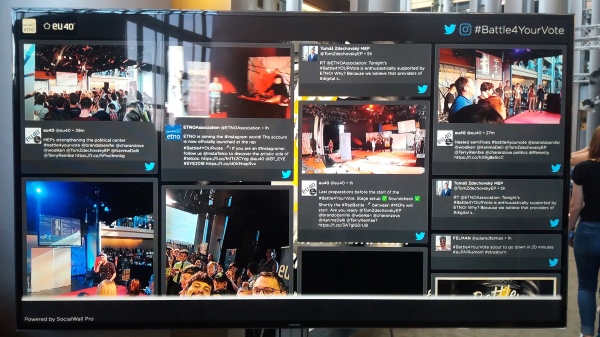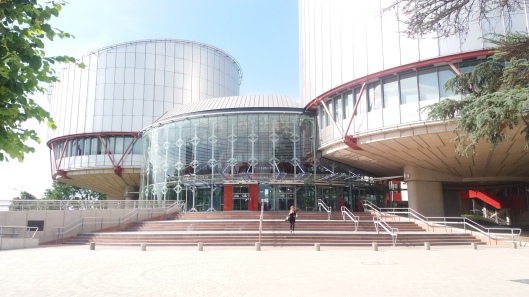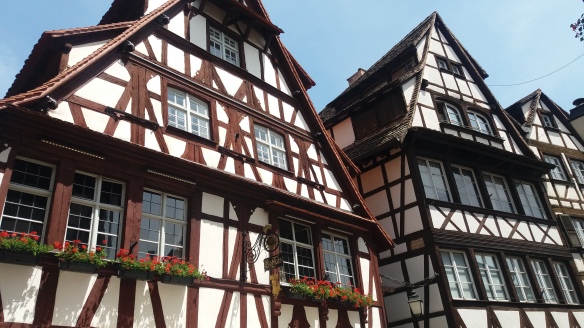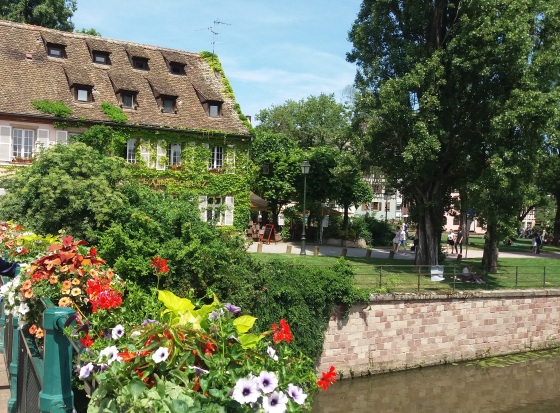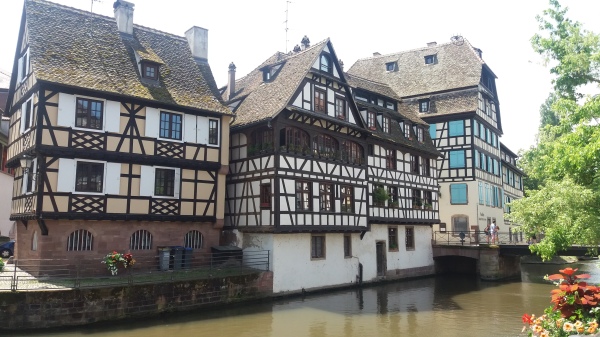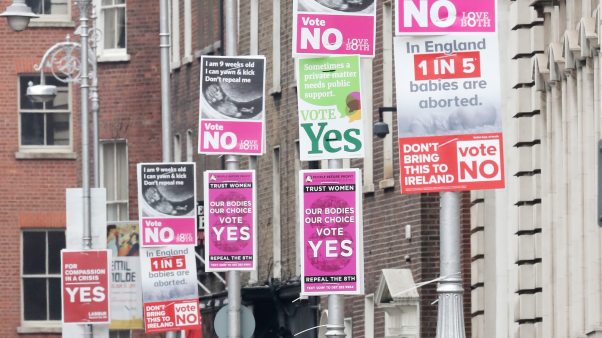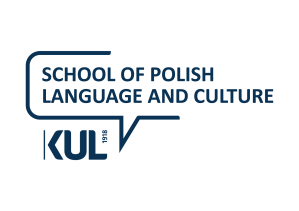Barbara Zak
This article is the third round of a series of interviews with European Union (EU) interns who agreed to share their experience about their traineeship in EU institutions. I would like to thank all EU trainees for their participation and their time!
Isabella – from Italy/Chile – EU Delegation to the UN – traineeship in the Human Rights Department of the Delegation – in Geneva
1/ Please tell us a little about yourself.
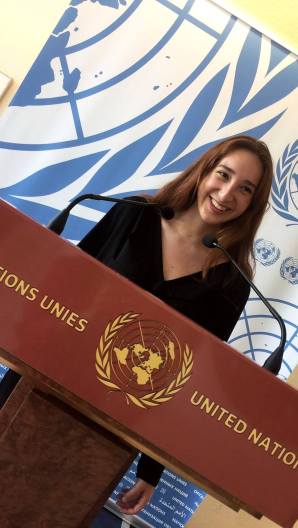
© Isabella Greppi Maturana
I was born in France, I am half-Italian, half-Chilean and I am currently studying Public International Law at Leiden University in the Netherlands. I graduated from Maastricht University in 2017 with a Bachelor of European Studies. During my studies, I interned at the EU Desk Department of the Italian Chamber of Commerce and Industry for Spain in Madrid and did an exchange semester at the University of Hong Kong. After my Bachelor’s degree, I decided to take a gap year and gain professional experience before starting my LLM. From September to March 2018, I did a six-month internship at the European Union Delegation to the United Nations in Geneva, where I worked in the Human Rights Department. From March to July 2018, I interned at the United Nations Office for Drugs and Crimes (UNODC) in Vienna, where I worked in the Agency’s Justice Section.
2/ What were your tasks, your missions during your traineeship? What does an EU trainee do specifically?
I was working for the Human Rights department of the Delegation, specifically on Human Rights issues in Africa. I would, therefore, follow meetings that dealt with African countries, mainly on Burundi, the Democratic Republic of the Congo (DRC), South Sudan and Egypt. My main tasks involved the following: preparation of briefings and reports from Delegation’s meetings with EU Member States, third countries, UN organisations, Human Rights Council (HRC) mechanisms, and NGOs; research on human rights issues and country situations; analysis of States’ behaviour and dynamics within the Human Rights Council and preparation of draft EU statements for the HRC discussion as well as internal reports for transmission to Brussels.
The biggest task for interns is the preparation of the Human Rights Council and all the work that is left after that. From reporting the weekly or sometimes daily EU Coordination meetings, to conferences at the UN, life at the delegation can get very busy and you might find yourself running between the Delegation and the UN. You get to attend several events including the Universal Periodic Review (UPR), where UN Member States (MS) human rights situations are assessed, as well as the Committee Against Torture, the Forum on Minority Issues, amongst others. You also experience the dynamic life of the Delegation since the EU does most of the work in terms of reporting to the headquarters and organising daily EU coordination meetings. Coordinating 28 MS can be very hard, especially when MS have differing views on specific issues!
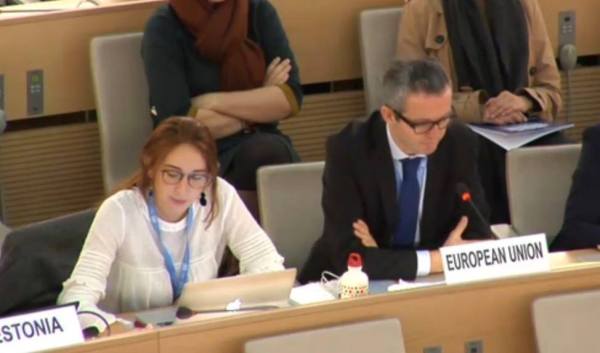
© Isabella Greppi Maturana
It was particularly interesting to work at the EU Delegation in Geneva since I had the chance to experience the complex realm of multilateral diplomacy between the EU and the UN. Moreover, Geneva has long been one of the world’s capitals of international law and the headquarters of international institutions dedicated to human rights, which therefore offers you many opportunities.
For more information on internships at the EU Delegation in Geneva, you can have a look at the following video here.
3/ Are there any tips that would be useful for future EU trainees to know?
I applied to several EU delegations around the world, and mostly got unsuccessful answers due to the EU change of policies regarding internships. I finally got a successful answer from the EU Delegation to the UN in Geneva, which had posted an announcement on their website for unpaid internships. I applied through their email and sent my CV as well as my motivation letter as requested. Their policy was rather strict in the sense that they only allowed internships for students studying, and thus residing in Geneva or for foreigners who were receiving financial support (scholarship from an institution, country etc.). I had to fill a form provided by the Delegation, where I had to mention my preferences for the department I wished to work in and they eventually called me for an interview.
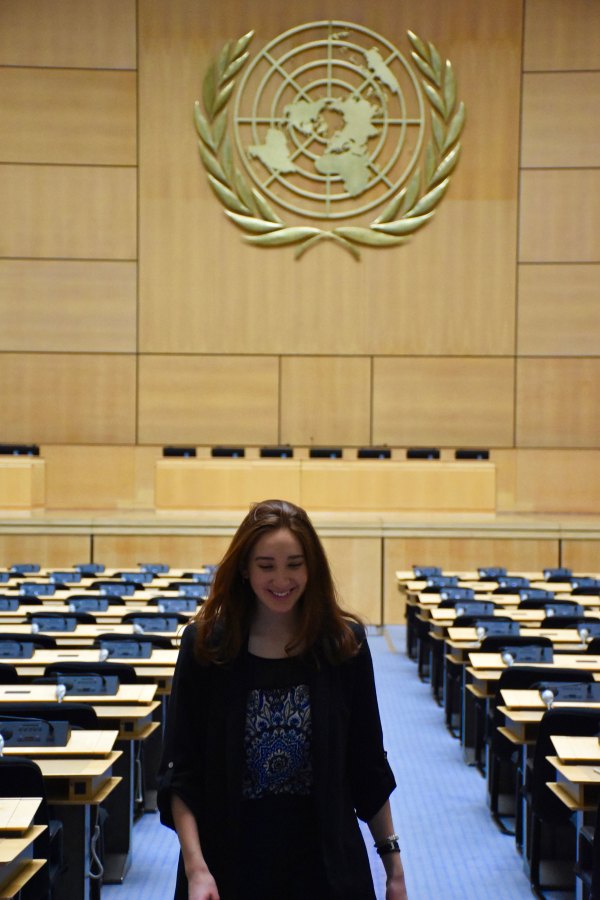
© Isabella Greppi Maturana
The EEAS has now changed the procedure for internships at the EU Delegations. Internships are now paid if the delegation can afford to pay their interns and are offered for: i) paid traineeship for young graduates with less than one year of professional experience; ii) unpaid compulsory traineeship for students already residing and studying in the host country; iii) traineeship for students of national administration schools of MS and iv) traineeship for trainee civil servants of an administration in a MS as part of their compulsory professional training. While you must have graduated from a university for paid traineeships, applicants from 3rd, 4th, or 5th year students can apply for unpaid compulsory traineeships.
Working at one of the many delegations of the EU can be an amazing experience, whether you do it at the multilateral level or at the bilateral one. I would definitely recommend it!
4/ Do you have a special memory, one of your proudest moments from this experience to share with us?
The highlight of working in the Human Rights Department was to attend the 36th session of the HRC in September, which lasts for three weeks. The most interesting part is to attend the daily EU coordination meetings, where diplomats from the 28 EU MS discuss their interests before starting the day at the HRC, as well as the ongoing side events and meetings with NGOs. The EU passed two Resolutions in African countries on Burundi and the DRC, which I followed throughout the whole HRC. Prior to the voting at the end of the HRC, there is a whole process of intense negotiations where States address their concerns during public or private informal consultations with the interested parties. A particular memory was when the EU Resolution on Burundi, which extended the mandate of the Commission of Inquiry, passed with a majority of votes. After long negotiations, it was satisfying to see the resolution pass and be adopted by the HRC!
***
Romain – from France – European Commission (EC) – traineeship in the DG for Economic and Financial Affairs – in Brussels
1/ Please tell us a little about yourself.
My name is Romain, I was born in France and raised in the Pyrénées, close to the Spanish border. I graduated from a first master of business administration : during my studies I lived one year in Spain and one year in Brussels where I took several classes on Human resources (HR). That is why when I graduated I decided to go for another master where I could study HR. I have had so far 5 different experiences in HR (learning and development, recruitment, internal communication, career guidance and employer branding). After my graduation, I decided to take 8 months off to just travel all over Europe and both West and East coasts of the USA. After that, I applied for a volunteering job in Brussels where I worked for almost two years as a HR business manager for a consulting company.
2/ What were your tasks, your missions during your traineeship? What does an EU trainee do specifically?
I was working in the Directorate-General for Economic and Financial Affairs (DG ECFIN) with the HR business correspondent team, which is the local HR department based in each DG. There I was in charge to support the team to launch internal projects in order to ensure staff engagement. I worked for instance on relaunching the programme for newcomers, organizing the summer school or to support staff in the realization of their projects. I believe that in my case, as a EU trainee, I had the chance to be part of a team that was trusting me with delivering projects for the greater good of our staff. From what I heard and saw, EU trainees bring fresh ideas and their motivation and this can have a positive impact on the common good for the DG (especially in HR).
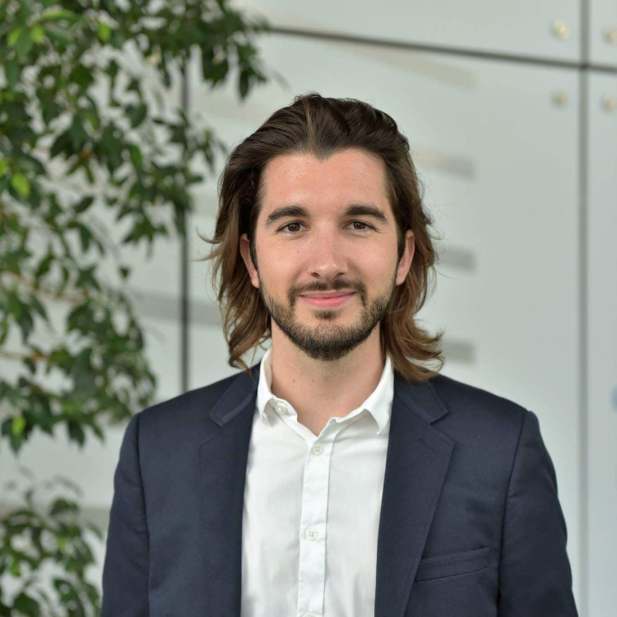
© Romain Milhé
3/ Are there any tips that would be useful for future EU trainees to know?
My advice would be: „Build a strong network”. As I am a HR person maybe I am biased here but I believe that the traineeship is a great opportunity to meet people and build a strong network that may be helpful in the future. Go to conferences, have from time to time a coffee with colleagues or other trainees, enjoy activities outside of work with perfect strangers (that may become great friends afterwards) or simply try to look for the right connections that will give you the opportunity to talk about projects you are interested in.
4/ Do you have a special memory, one of your proudest moments from this experience to share with us?
One of my best memory can seem naive but it happened right at the end of my internship. I had to say goodbye to my team and as word was spreading that my traineeship was ending, more and more people came to me to tell me how much they appreciated my professionalism but also my kindness and big smile every time I was passing by to say hello. Of course, I could say that I was proud of being able to support my two colleagues delivering a two-week training course for more than a hundred people, but what is more important for me is to know that somehow if I ever pass by the DG ECFIN, I will be remembered.
***
Dionysia – from Greece – European Commission – Directorate General for Justice and Consumers – Data Protection Unit – in Brussels
1/ Please tell us a little about yourself
I am a licensed lawyer in Greece, practicing in various fields of law the last eight years. I am also holder of an LL.M. Degree in European and Comparative Social Law from Toulouse I Capitole University (France) in collaboration with the Aristotle University of Thessaloniki (Greece). My postgraduate studies were the incentive to become a more active European Union citizen, since they raised my interest for EU law. Working in an EU institution was a personal ambition and a professional challenge for me.
Work experience is not necessarily a prerequisite for a trainee. However, depending on the position, it is sometimes a useful asset for your personal progress. As for language skills, I speak Greek as mother tongue and I am proficient in English and French, also in terms of legal terminology. Currently, I am learning Spanish.
2/ What were your tasks, your missions during your traineeship? What does an EU trainee do specifically?
In my view, the element that makes this traineeship different and precious is that EU trainees are integrated to their unit’s team and actively participate in meetings and projects. Nevertheless, the extent to which a trainee can contribute to the unit’s work also depends on other factors, such as their qualifications and professional background. An EU trainee mainly assists the unit in their tasks but also carries out work individually.
Respectively, I both performed work that was solely assigned to me or participated in my unit’s tasks and projects. My work was related to the monitoring and enforcement of the General Data Protection Regulation (GDPR). My main task was to handle cases on the protection of personal data and the implementation of the relevant EU legislation. I also participated in a project concerning the review of existing EU legislation. Last but not least, I attended meetings, for which I had to draft minutes, I prepared memos and I had the chance to attend hearings at the European Parliament and workshops, related to data protection issues.
3/ Are there any tips that would be useful for future EU trainees to know?
First of all, do your research before applying. Look for the traineeship that better suits your profile and satisfies your professional ambitions. Also, be confident about the time period you want to carry out your traineeship: if you choose to do so right after your studies or if you prefer to gain work experience first. I don’t promote any particular choice, but I think your perception of this experience will be different depending on that. Last but not least: don’t miss the deadlines! The application and selection procedure is long, not to mention competitive.
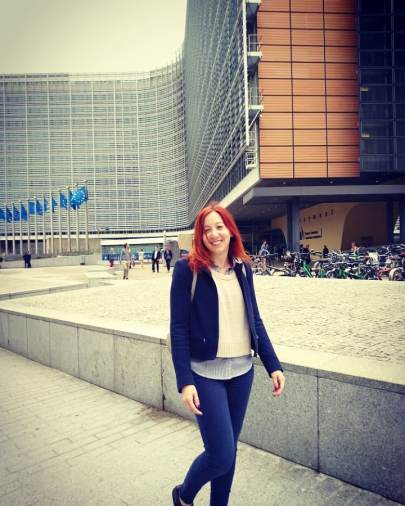
© Dionysia Theodoritsi
If you are lucky enough to be selected, one tip is worth remembering: Don’t hesitate to ask! Nobody knows everything and even if so, it’s not you as a trainee :). It’s more productive to have thorough understanding of the task you are assigned to rather than pretend to know and fail to accomplish it. Another tip from my experience is to never miss a chance to participate in meetings, conferences and work-related events. There might be times that the colleagues are busy enough to suggest you to attend a meeting. Don’t always wait for them. Be proactive! But at the same time be considerate. Don’t bring your team in an awkward position if the nature of the meeting does not allow your presence in it.
4/ Do you have a special memory, one of your proudest moment from this experience to share with us?
The traineeship itself was an invaluable experience and a benchmark in my career. I have special memories of my participation in events, hearing, workshops and conferences. Being in the heart of EU decision-making is something that not everybody has the chance to experience and I feel privileged to have had this opportunity.
A particularly special occasion was my participation in the 25 May event, organised by my unit for the entry into application of the GDPR that prominent professionals and experts attended. A proud moment is the creation and editing of the yearbook, along with a team of six other trainees. It is a project entirely carried out by us, the yearbook team, about a book including profiles of all trainees of our session that wanted to be part of it. The idea was brought back to life again after many years and, despite the difficulties we faced, the feedback was really positive, which made me even more excited and proud for contributing in it.
Apart from work, the whole traineeship was a collage of enthralling moments: meeting so many talented people, from different ethnic, cultural, academic and professional backgrounds, having the chance to discuss with Commissioners and high-ranked officials, joining international events and making friends from all over the world were definitely among the highlights of this traineeship.
***
Paola – from Italy – Court of Justice of the European Union – traineeship in the Registry of the Court of Justice – in Luxembourg City
1/ Please tell us a little about yourself.
I have obtained a Bachelors and Masters Degree in Political Science and Diplomacy at the University of Milan and I currently study Law at the University of Bologna. After having completed my Masters Degree, thus learning about EU Institutions in a theoretical manner, I decided to apply this knowledge on a more practical scale. Indeed, I applied for an internship at the ECJ in 2017 and was recruited for one in the sunny summer of 2018.
2/ What were your tasks, your missions during your traineeship? What does an EU trainee do specifically?
Generally speaking, the tasks of the interns differ based on the directorate which the intern has been assigned to. In fact, during the recruitment process, interns are selected based on their profiles as well as the needs and requirements of each directorate. If candidates are particularly interested in working for a certain directorate, I would advise them to mention this point in their applications. On a more personal note, I had the pleasure of interning at the Registry of the Court of Justice, which is responsible for handling, classifying and archiving cases and documents in an efficient manner. Moreover, speaking both French and English at a very good level is advantageous for interns when they carry out their daily tasks at the ECJ and when they stroll around in Luxembourg.
3/ Are there any tips that would be useful for future EU trainees to know?
I would say that keeping an eye on the internship’s deadlines, preparing the application well in advance, and keeping one’s cool throughout the lengthy application process, are fundamental traits of a well-organised candidate. Moreover, I would tell unsuccessful applicants not to be discouraged if they do not obtain an internship the first time they apply – competition is tough and luck always plays a role! The important thing is to serenely carry on doing the best one can at university or at work, whilst patiently sending out applications. As for applicants who do receive an acceptance letter, I would advise them to start looking for apartments and to check if their documents are in order. Once they do start the internship, it is fundamental to work hard, but exploring the city and socialising in the weekends is a must!
4/ Do you have a special memory, one of your proudest moments from this experience to share with us?
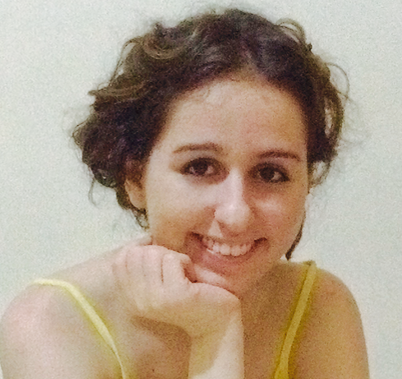
© Paola Lo Bue Oddo
I wouldn’t say that I have one specific favourite memory seeing as the whole experience itself was fruitful and enjoyable on an intellectual and practical scale. My colleagues provided detailed background information on certain hearings whose topics were of great interest to me, meticulously explained laws or procedures which I asked them about, and provided excellent career advice. My fellow interns organised enjoyable outings, picnics and lunches, and were very pleasant, helpful and conversational. However, the most distinctive memory which I have is when, after having finished the internship, I got on the bus home, wondering if I’d ever come back to Luxembourg. Therefore I was overjoyed when a few weeks later, I received another offer by the EU Commission!
***
Sofia – from Greece – traineeship in the Permanent Representation of Greece to the EU and in the European Parliament – in Brussels
1/ Please tell us a little about yourself
Hello, I am Sofia Andreadaki, a Greek law school graduate currently working as an official Schuman trainee at the European Parliament in Brussels. I was previously working as a trainee lawyer in a law firm in Greece and before that as an „Erasmus placement” trainee at the ‚Permanent Representation of Greece to the E.U.’ in Brussels, for which I have been requested to talk about as well. This is actually my 3rd time living in Belgium, because I have also done my Erasmus studies semester in K.U. Leuven University, in Leuven, a couple of years ago.
2️/ What were your tasks, your missions during your traineeship ? What does an EU trainee do specifically?
As far as my traineeship in the ‚Permanent Representation of Greece to the European Union’ last year is concerned, it lasted 3 months and it took place in Brussels. My tasks included taking part in the official working groups of the Council of EU in Brussels, at the energy and environment committee. There, I was writing down the minutes of all what the representatives of each country were saying, each of course speaking in other languages with simultaneous translation in English, then I was translating it all in Greek and sending them in the form of reports to the Greek Foreign Ministry. Every day the discussions in the working groups were so in-depth, so I learned an incredible amount of things, terminology and updates about the European Energy law, which I could’ve never learned in law school. The experience was unbelievable, because I had access to all the inside discussions on the latest topics, meetings with important policymakers and lawmaking procedures. I felt like I was present in important moments when the laws that would apply to all European countries were being created..!
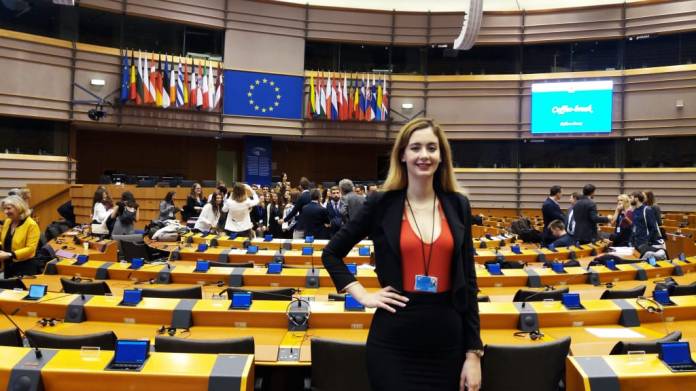
© Sofia Andreadaki
As for my current Schuman traineeship in the European Parliament, I just started it the previous week and I am already very excited about the working environment, the colleagues and the topics we deal with. I feel again that we are part of the policy making procedure of EU, which will then affect all the European households, since 80% of every member-state’s legislation is European legislation..! The experience is so fascinating, that we all feel grateful, as out of 6000 applicants, only 280 of us were selected for the official traineeship in the European Parliament in Brussels. My tasks here include attending the committee meetings of ITRE (the committee on energy, industry and research) since I am working for the ITRE committee, writing reports, doing research, preparing feedback for the official committee working groups and many more which I will discover in the next days.
3/ Are there any tips that would be useful for future EU trainees to know?
First of all, I’d advise them to dare to step out of the comfort zone, be it by applying in such exchange international programs like Erasmus studies or Erasmus placement or to job posts abroad. After that, more practical tips concerning the application procedure of the Erasmus placement traineeship (for which I’ve been requested to talk by the interviewer) would be to get informed about such programs by the University, by attending info sessions or events or ask other former erasmus students and of course by searching a lot online and asking the international office of the university. For example, in order to do my „Erasmus placement” at the Permanent Representation to the EU, I had to first search for months, get in touch with a thousand embassies, representations and consulates in every country as well as with the Erasmus office a million times, in order to gather information. After that, you send your CV to the institutions where you’d like to do your Erasmus placement and wait for admission letters which you then upload, along with many other documents, to the „Erasmus placement” official application. Then you once again wait for approval. All this procedure is very demanding, but the experience will be totally worth it, I assure you! So, I recommend to everyone to be open, search everywhere for such opportunities and keep an eye for anything interesting like that.
4/ Do you have a special memory, one of your proudest moments from this experience to share with us?
Ooh I recall so many memories and moments that I could talk for hours! I can start by mentioning an outstanding moment: already this second week of our Schuman traineeship at the European Parliament, the president of the European Parliament, Mr Tajani, sent an email exclusively to us, the Schuman trainees, inviting us to a photoshooting with him and Bono, the U2 singer! And then Mr Tajani posted our photo on his facebook account, so as you can imagine we felt very honoured.
Moreover, everyday life in these experiences is so fascinating, because you are everyday working and living with international people from all around the world, in European institutions which are dreamy working environments. My Erasmus placement traineeship and the current Schuman stage (as well as the Erasmus studies semester) are/have been the best times of my life, full of so amazing people and a chance to discover what I like doing more in life and how to continue my career path. I have also learned so many things about European law in practice, that I couldn’t have learned just from university. I am also grateful for my supervisors both in the Permanent Representation and at the Parliament, who are so helpful and teach us a lot of things.
My traineeship highlights up to now at the European Parliament’s stage are: laughing so much and sharing common interests with my co-trainees, working with 15 other trainees from 10 different countries in our common office, buying a coffee machine all together, decorating our office… Feeling that we all share common interests, goals and fears, even if we come from different countries and so many more to come, since we are still only at the 2nd week!
FOR MORE UPDATES
JOIN OUR FACEBOOK COMMUNITY!
